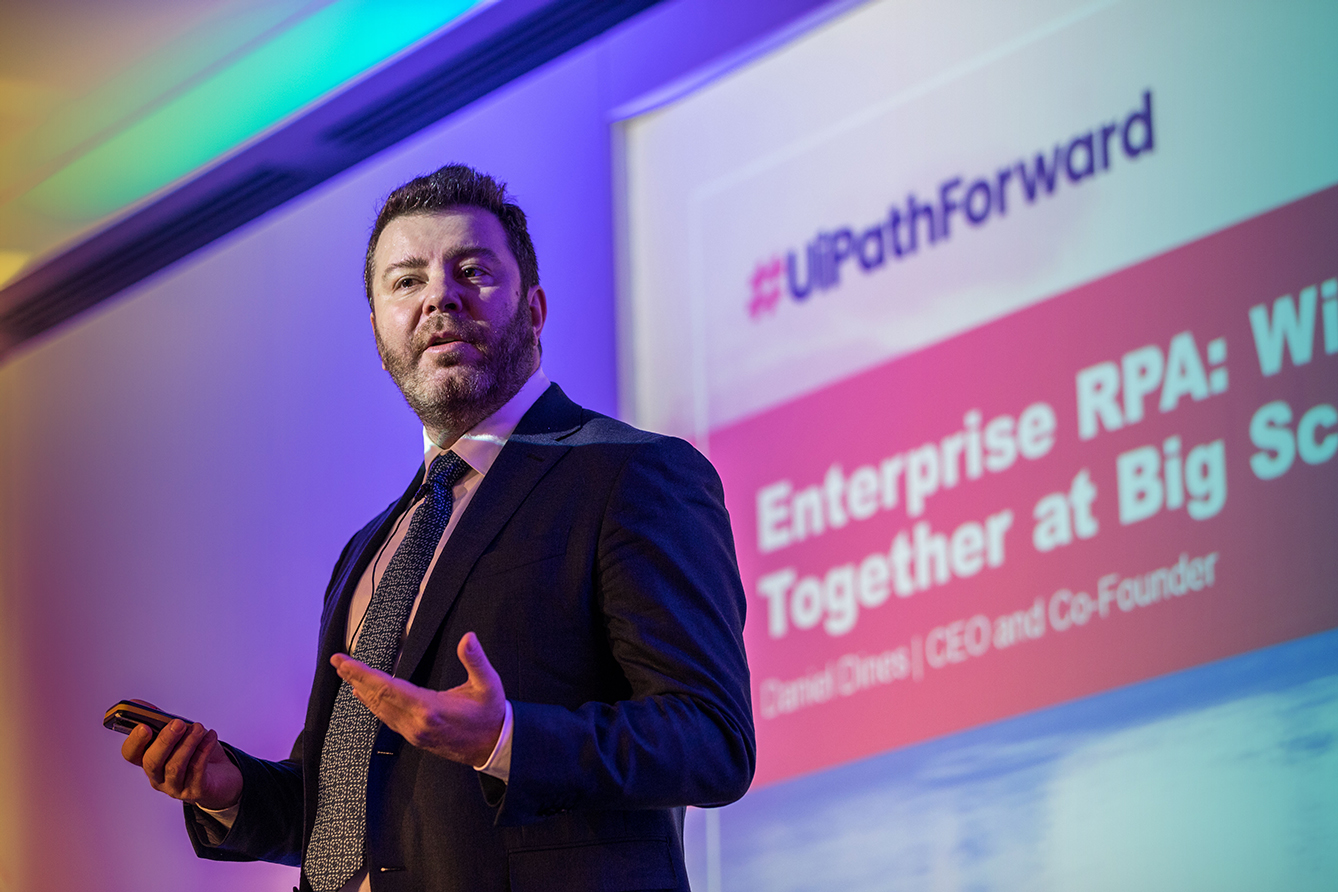Few people have revolutionized an entire industry in the way that the Romanian entrepreneur Daniel Dines has. Despite not inventing the technology, his company UiPath was the first to make Robotic Process Automation (RPA) widely accessible to markets across the world, making him Romania’s richest man in the process. Daniel Dines is the son of a teacher and a civil engineer who met after the country’s communist dictator Nicolae Ceausescu relocated them both to a new chemical factory town.
Growing up, Daniel discovered that he was very talented in mathematics but was otherwise uninterested in schoolwork. After starting university in 1990, he practically skipped all but some math and computer science classes to instead focus on playing competitive bridge. By the mid-nineties, he found out that Romanian coders working on outsourced projects for U.S. tech companies could make up to a whopping USD 300 per month, a small fortune in Romania at the time. Motivated by the chance for a better life, he borrowed a book on C++ and learned how to master it on a friend’s computer during the hours his friend spent sleeping.
After a short stint working for Microsoft in Seattle, Daniel returned to Romania in 2005 and started the tech outsourcing company, DeskOver. After a few unsuccessful years, the breakthrough came in 2013 when the company released its first UiPath Desktop Automation product line after an Indian customer showed Daniel a method on how to train software to automate simple tasks such as data entry. In 2015, the company changed its name to UiPath. It became obvious that its virtual robots were faster and cheaper in operation for companies than having dozens or hundreds of employees spend their entire workdays on creating Excel macros and filling spreadsheets.
Small markets and global companies
As the UiPath robots became increasingly popular with companies automating their manual and repetitive back-office tasks, Daniel realized that the company had to expand abroad to continue capturing market shares. He puts it bluntly: “starting a company from a small place with no market has a hidden advantage: It forces you to think globally from day one.” After receiving seed funding from Accel Partners in 2015, the company also opened offices in Bangalore, London, New York City, and Tokyo. Two years later, the company had grown to nearly 600 employees and moved its headquarters to New York.
However, the company has not abandoned its roots. Bucharest remains a critical R&D center; a quarter of the company’s employees and Daniel still spends around one-third of his time in Romania. In April 2021, the company went public after an IPO on the New York Stock Exchange. Daniel still owns more than 20% of the company’s stock, which is now valued at more than USD 7 bln, making him the world’s first bot billionaire. The Romanian entrepreneur believes that this is just the start and has emphasized that the automation market is still in its early stages. Daniel is undoubtedly reaching for the sky, having made his ambitions clear. “Bill Gates used to talk at Microsoft about a computer in every home, but I want a robot for every person.”







